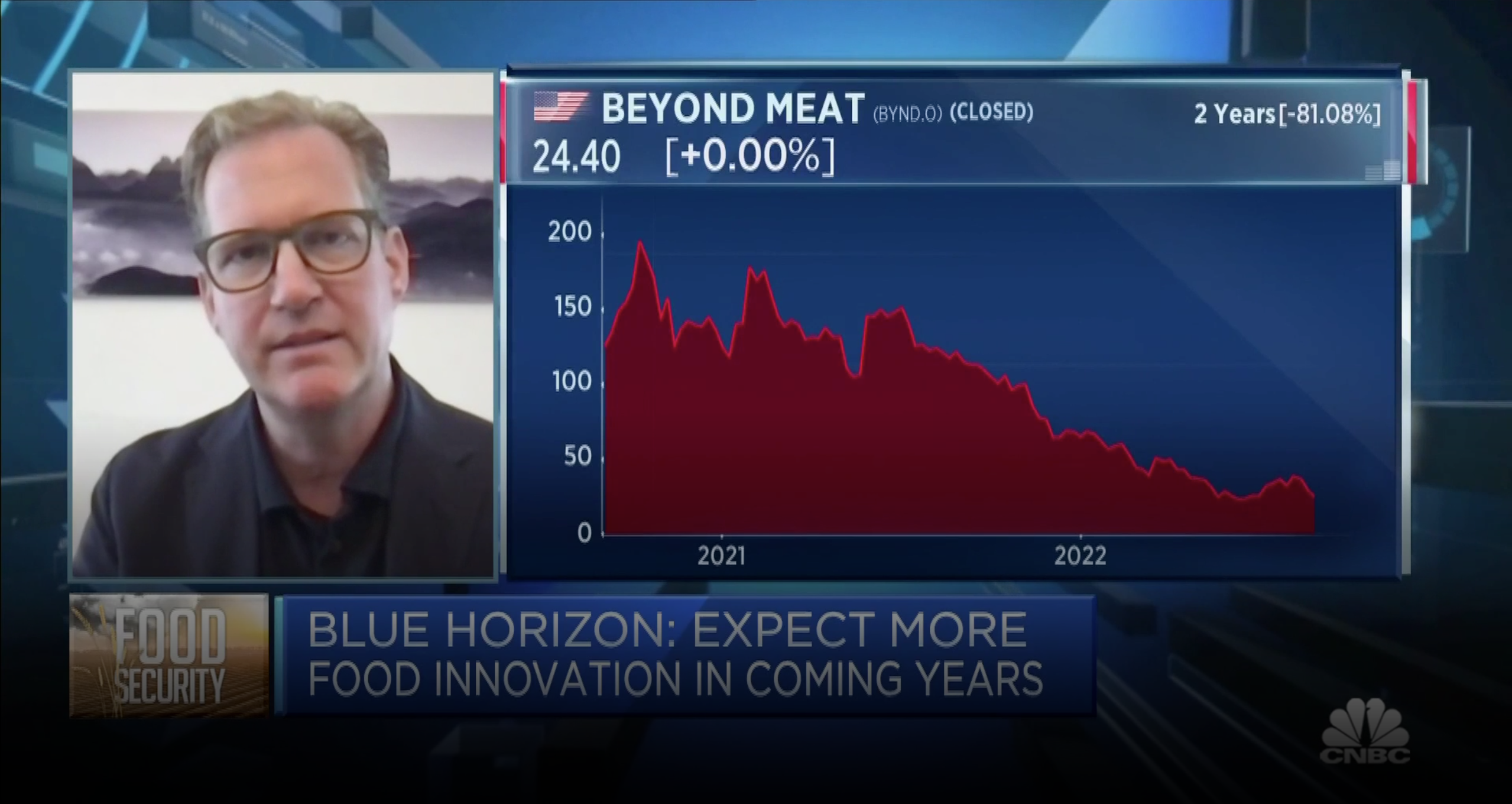by Björn Witte, CEO of Blue Horizon
A study conducted by Blue Horizon and MSCI, The Protein Transformation: A Critical Driver of the Net-Zero Economy, indicates that in a 1.5°C climate scenario, food companies not involved in plant-based and alternative proteins could be overvalued putting the industry at risk of a USD 295 billion market-cap loss.
This loss could be mitigated if food companies shifted revenue opportunities to mostly traditional plant-based and alternative proteins in the food value chain, minimising risks presented by the climate transition.
Additional findings within the report reveal:
- While almost 46% of companies (224 out of 485) are involved in traditional plant-based and alternative proteins, only 10% of these generate more than 5% total sales from such products.
- European companies are best prepared to tap into growing consumer demand for traditional plant-based and alternative proteins, despite corporate involvement for the region being nascent.
- Companies involved in traditional plant-based and alternative proteins are more likely to focus on comprehensive, science-based carbon-reduction targets across the full value chain.
- On average 95% lower-value chain climate transition risk for companies generating more than 50% of their revenue share from traditional plant-based and alternative proteins.
Engagement in the protein transformation offers opportunities in terms of contributing to a net-zero economy. In fact, protein transformation could be a critical driver for:
- Companies to meet their climate targets and capture market opportunities;
- Regulators to address the challenges of emissions from the agricultural sector via a fair, transparent and inclusive transition;
- Investors to de-risk their investment in transition to low-carbon economy by capturing the opportunities emerging in this rapidly growing space — across both public and private assets.
The reputation of Blue Horizon as the leading impact investor in alternative proteins has never been more prescient, as this study reveals, companies across the entire food value chain have a shared imperative for the wholescale transformation of proteins. While the extent to which companies’ market value is exposed to climate risks, often directly connected to proteins, is alarming, these results also shed light on the wider market opportunities in sustainability, which we invest in at Blue Horizon as part of our mission to accelerate the transition to a new Sustainable Food System. Every company in the food value chain, investors concerned with climate risk, and regulators looking to address agricultural emissions will find «The Protein Transformation» is a vital resource for the world to limit global warming to 1.5°C and mitigate the worst effects of climate change.
About the study
The Protein Transformation: A Critical Driver of the Net-Zero Economy analysed 485 listed companies in the food value chain and the ways different market segments generate revenue from or invest in the traditional plant-based and alternative proteins space. Research conducted for the report included semantic keyword analysis using natural language processing (NLP) of news, websites, company reports, and green patents databases in order to identify the emerging trends and drivers of the traditional plant-based and alternative proteins market. The report leverages MSCI’s Climate Value-at-Risk (Climate VaR) analysis and Blue Horizon’s proprietary research to measure climate change transition risks and potential alignment with a net-zero economy.
To review the full report, please click here.
